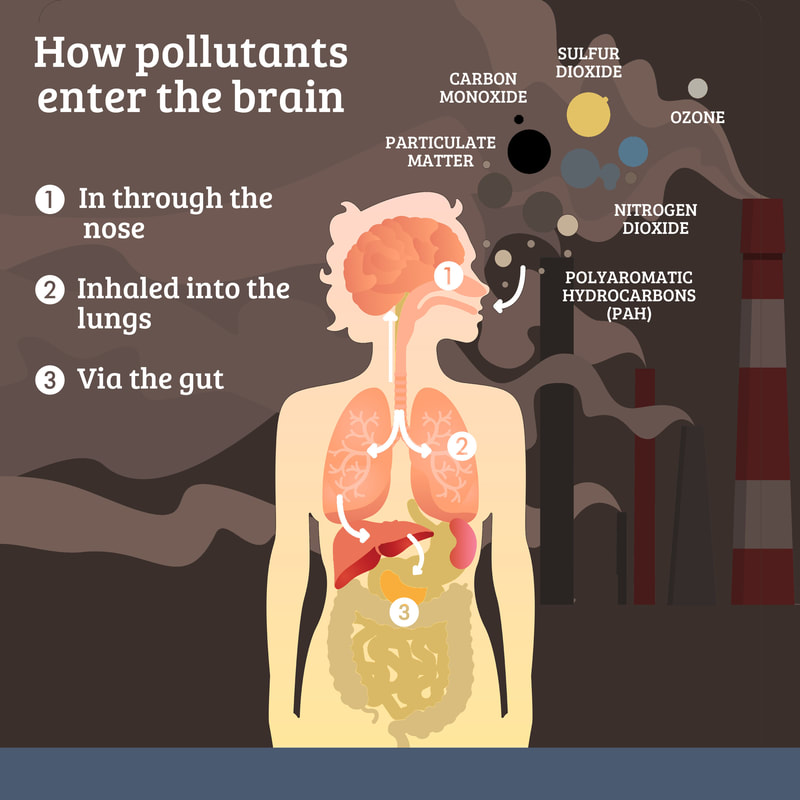|
In the wake of ongoing and continually increasing concerns regarding the effects of air pollution on our health, a new study now cites air pollution as a possible risk factor for the development of multiple sclerosis (MS). Researchers in Italy who conducted the study noted that the risk was 29% higher among people who lived in urbanized areas. This 2020 study looked at more than 900 MS patients living in the northwestern Italian region of Lombardy. Findings revealed that study participants who lived in rural areas with lower levels of airborne particulate matter appeared to have a lower risk of MS; in contrast, those who lived in more urbanized areas appeared to have a 29 percent higher risk.
The researchers also noted that in the Lombardy region, MS rates have risen tenfold in the past 50 years, from 16 cases per 100,000 inhabitants in 1974 to almost 170 cases per 100,000 people today. It’s also worth noting that COVID 19, which was rampant in this part of Italy, and an increased risk of infection was thought to be influenced too by higher levels of air pollution. Smog in our brains. “The State of Global Air,” a 2018 report by the Boston-based nonprofit Health Effects Institute warned that up to 95 percent of the people on Earth were breathing unsafe air. That’s truly a frightening number especially when you stop and realize the negative conditions are essentially all manmade, the result of environmental influences and myriad of toxins we have more or less unleashed upon our planet. Researchers have conducted numerous studies that link exposure to dirty air associated with urban living to cognitive decline, neurodegenerative disease such as Alzheimer’s, autoimmune and inflammatory conditions, cardiovascular disease and stroke. Results aren’t just identified in aging populations – we are seeing evidence of disease and decline in much younger people, including teens and children. Other studies serve to underscore further the concern that initiation of neurological disorders can be influenced by exposure to smog-ridden, toxic air. Researchers from the University of Southern California (USC)reported that elderly women of European ancestry living in areas of the U.S. with levels of particulate matter that exceeded the US Environmental Protection Agency standard of 12 μg/m3 were 81 percent more likely to experience cognitive decline generally and 92 percent more likely to suffer dementia than if they had been living with exposure below that limit.1 The increased risk in polluted areas, a finding that mirrors the results from cohorts in London2 and Taiwan3, “was particularly high for people with dementia or Alzheimer’s-associated genetic variants such as APOE Ε4, hinting that air pollution might have more-severe effects in those genetically predisposed to neurodegeneration.” But, it is never one thing that leads to poor health. Perhaps the most important lesson we need to take away from the current COVID situation is that this virus and the higher numbers of cases we’ve seen in certain parts of the world may also be linked to multiple risk factors including those concomitant environments. I have repeatedly stated that our toxic world is driving humanity to its knees. And if we learn nothing else going forward it must be to change our behaviors and our priorities – our healthy lives and our futures depend on it. In health and hope, Dr. Suzanne Gazda References 1 Cacciottolo, M., Wang, X., Driscoll, I. et al. Particulate air pollutants, APOE alleles and their contributions to cognitive impairment in older women and to amyloidogenesis in experimental models. Transl Psychiatry 7, e1022 (2017). https://doi.org/10.1038/tp.2016.280 2 Carey IM, Anderson HR, Atkinson RW, et al Are noise and air pollution related to the incidence of dementia? A cohort study in London, England. BMJ Open 2018;8:e022404. doi: 10.1136/bmjopen-2018-022404 3 Wu, Y. C., Lin, Y. C., Yu, H. L., Chen, J. H., Chen, T. F., Sun, Y., Wen, L. L., Yip, P. K., Chu, Y. M., & Chen, Y. C. (2015). Association between air pollutants and dementia risk in the elderly. Alzheimer's & dementia (Amsterdam, Netherlands), 1(2), 220–228. https://doi.org/10.1016/j.dadm.2014.11.015
0 Comments
Your comment will be posted after it is approved.
Leave a Reply. |
AuthorDr. Suzanne Gazda, Integrative Neurology Archives
February 2024
Categories |

 RSS Feed
RSS Feed